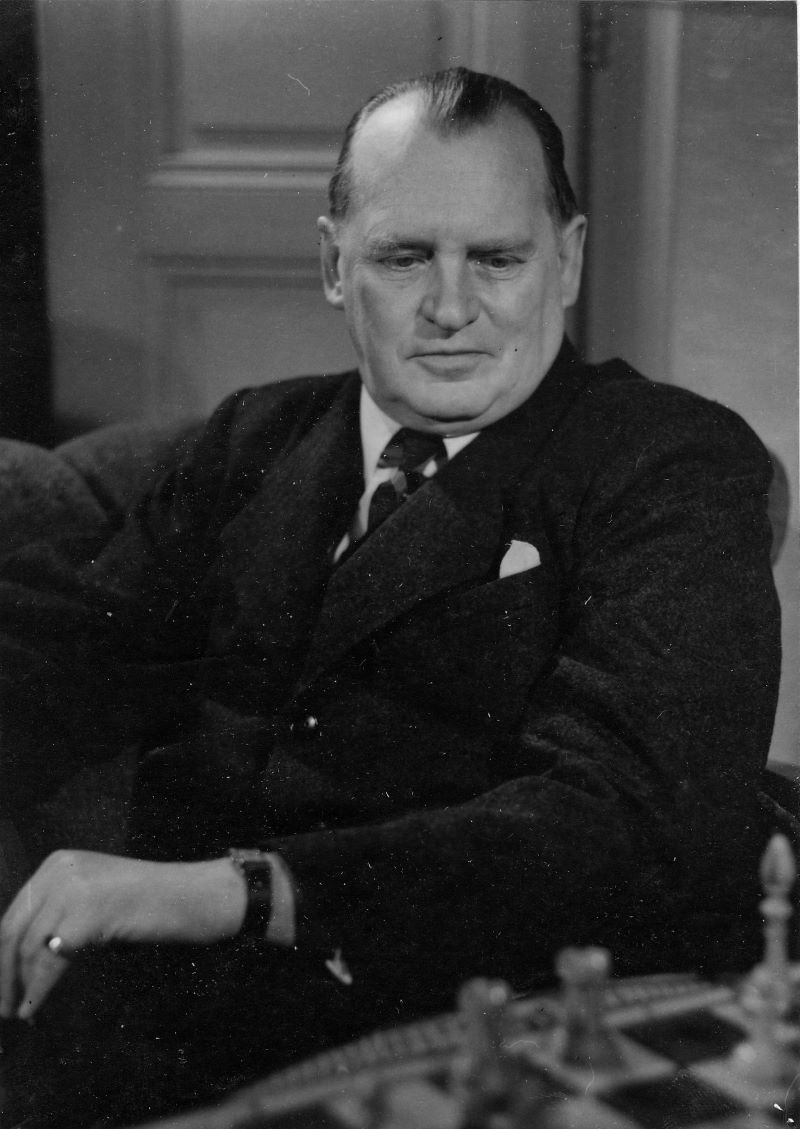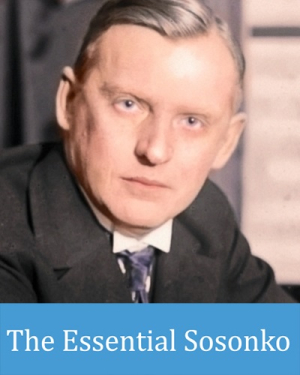
The Double Devil’s Dozen
Shortly after the 2024/1 issue of New In Chess Magazine had arrived in his mailbox, Genna Sosonko gave me a call. He had read the first installment of my new column ‘The Scoresheet’ and drew my attention to an article he had published some ten years ago on a Russian website about exactly that same scoresheet (Alekhine-Lasker, Zurich 1934). Genna rightly thought I’d be interested in what he had written, particularly because of a couple of details I had left out or missed.
In my column, I focus on the importance of Alekhine’s only win ever against the great Emanuel Lasker, in Zurich 1934, and have a look at the winner’s scoresheet to see what indirect background information it provides to this historical game.
As for Genna, at the time he had seen an image of Alekhine’s scoresheet online in an article on the library of chess collector David DeLucia, and had used it as the starting point for a broader portrait of Alekhine that covered a lot more than just his encounter with Lasker in Zurich 1934. However, regarding the scoresheet, he pointed out a fascinating detail in his article that I was not aware of. Alexander Alekhine made no secret of his superstition.
Alexander Alekhine made no secret of his superstition.
For a confrontation between two such giants, Alekhine’s win against Lasker in Zurich was remarkably short. The fourth World Champion, at the height of his powers in those years, only needed 26 moves to force the second World Champion’s resignation. To my surprise, the number of moves that it took Alekhine to win was not ‘just a number’.
What I did not know was that 26 was Alekhine's lucky number. For instance, whenever he played roulette in a casino, he would put his chips on 26. And so, when Lasker had resigned and some of the other players gathered around their board, Alekhine silently signaled to Salo Flohr the numbers 2 and 6. Flohr knew exactly what this subdued gesture of triumph meant and described the moment in his memoirs.
‘When Lasker had resigned, Alekhine silently signalled to Salo Flohr the numbers 2 and 6’
Of course, 26 is two times 13, the number that in many countries around the world makes people wary. Generally, hotels don’t have a thirteenth floor and in airplanes row 12 is followed by row 14. For Alekhine, who also believed in horoscopes and such, 13 was definitely not just a number.
In Russia, 13 is called the Devil’s Dozen and as every chess player knows, there are also champions for who 13 is a lucky number. Easily the best known example is Garry Kasparov, the 13th World Champion, born on April 13, 1963, who never made a secret of how fond he was of the number. In his article, Genna describes how creative Kasparov could be to highlight this fondness: he became World Champion in 1985 (8+5=13), by defeating Karpov with a score of 13-11. The decisive win was the 94th between them (9+4), it was played on October 3 (3+10) and it happened to be his 13th victory over Karpov.
Clearly, Alekhine also believed that 13 was a portent of good things to come, but just to be on the safe side he put even more trust in 26, which we may dub ‘the Double Devil’s Dozen’.
Alekhine had an excellent command of various languages. He was fluent in German and so it’s not surprising that he wrote down his moves in the Zurich tournament in German. What is an interesting further detail, as Genna remarked, is the way he wrote his name on this scoresheet: Alekhine. With this orthography he wanted to indicate how he preferred his name to be pronounced. Most Russians pronounce his name ‘Aljochin’ (more or less), but he had made it clear that this was not to his liking, as to his ear it sounded vulgar and suggested he was just a very ordinary citizen. He wanted his name to sound more chic, nobler, and that’s why he preferred ‘Ah-laykheen’, with an emphasis on the second syllable.
And that’s why he wrote ‘Alekhine’. With the result that to this day many chess players pronounce his name ‘Alekein’ with emphasis on the first and final syllable. That’s not even close to how it should be, but one may say that at least in part Alekhine was to blame for this himself.
Have a look at the game that made Alekhine so happy. It must have been a great relief that after three earlier losses he finally managed to defeat the elusive Lasker. Of course you should not forget that Lasker was 65 years old in 1934, when he returned to chess in Zurich after a 9-year absence. In the end he finished fifth, three points behind Alekhine (41), but a full point ahead of Nimzowitsch (47) and Bernstein (51).

